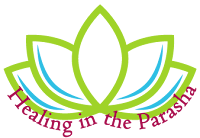Parashat Shemini
Hashem selected the Jewish people for spiritual leadership, for the purpose of elevating the entire world in His service. He, therefore, provided us with the means to achieve our exalted purpose as the chosen people, by giving us the laws of the Torah, including the dietary laws.
The word חַיָּה/chaya – ‘living creature’ denotes חַיִּים /chayim – ‘life.’ Since the Israelites cleave to the Omnipresent and are therefore worthy of being alive, accordingly, G-d separates them from impurity and decrees mitzvot upon them [through which they can live] …This is comparable to a physician, who went to visit a patient, who was incurable and allowed him to eat anything he wished. Whereas, when he went to his patient, who was to recover, the physician imposed restrictions on his diet, that would ensure that the recoverable patient would live.…” (Rashi, Vayikra 11:2 based on Midrash Tanchuma).
Parashat Shemini provides us with the criteria for kosher animals and also lists the unkosher beasts, fowl, and fish. The laws of Kashrut (kosher food) belong to the category of Chukim – statutes for which we don’t have logical explanations – and which we must accept simply because Hashem decreed them. Nevertheless, Sefat Emet explains that when we accept to keep the statutes out of pure faith, without demanding to understand their reasons, their reasons will eventually be revealed to us. Everything in the physical world has corresponding spiritual energy that it parallels, symbolizes, or embodies. Ramban notices the difference in nature between kosher and unkosher animals. Namely, milk of kosher animals can curdle, whereas milk of those unfit for food does not coagulate and cannot be made into cheese. Thus, they are physically different. It is possible to say on the basis of this difference that just as their milk is different, so is the meat of unkosher animals different in a way that may harm those who eat them (based on Ramban 11:13).
The food we consume greatly affects both our physical and spiritual health. Our character and our spiritual sensitivity are greatly influenced by what we eat. Non-kosher foods coarsen the body, and thereby, cloud the holiness of the soul.
The first warning וְלֹא תִטַּמְּאוּ/lo titam’u refers to our bodies, whereas the second warning, וְנִטְמֵתֶם/venitamtem refers to our souls. The word וְנִטְמֵתֶם is written without the letter א/alef after the letter מ/mem. The missing א/alef indicates that anyone eating these creatures becomes מטומטם/metumtam – ‘dull-witted’ as a result. Man’s heart becomes ‘encrusted’ through the ingestion of such forbidden creatures so that it can no longer access the Holy Spirit (Rabbeinu Bachaya, Vayikra 11:43).
Therefore, the Torah warns us against forbidden foods, upon which dwells extraneous impure energy. A person who eats unkosher food makes his soul impure, distances himself from kedusha (holiness), and weakens his connection with the G-d of Israel. Conversely, eating kosher foods, with holy intention causes the attachment of a holy pure spirit so that the soul will enjoy and benefit from the food as it states, “A tzaddik eats to satisfy his soul” (Mishlei 13:25). The holiness of the food thus affects our soul positively (HaShelah HaKodesh, The Gate of the Letters, the Holiness of Eating 1).
Many Torah commentators draw parallels between the character of animals and their kosher status. All kosher livestock are not beasts of prey, while the rest devour others. Likewise, the list of forbidden birds includes all the predatory birds. These birds are unkosher due to their cruel nature (Ramban, Vayikra 11:13). Any bird which attacks with its claws is automatically known as an impure bird. Our sages (BT, Chulin 62) mention that the reason the Torah forbade the consumption of such birds is that they are more hot-blooded. Their blood turning black indicates a cruel streak in the character of the bird. Eating such a bird leaves a residue of the character of the animal in the person who consumes it. The objectionable part of such a predator bird is that it hunts live prey and does not kill it before feasting on it. Apparently, hawks operate in this manner (Rabbeinu Bachaya, Vayikra 11:13).
I’m fortunate that since early childhood, my parents discovered that I was allergic to shellfish, so I was safeguarded from eating prawns, lobsters, oysters, and other sea creatures, which lack the two kosher signs: fins and scales. These two characteristics of kosher fish have both physical and symbolic impacts. Ramban explains that fish, who have the kosher distinguishing features, make their habitat in the upper part of seas or rivers. The waters there are clear and absorb a certain amount of daylight and sunshine. This influences their growth and development. The scales are for fish what hair and wool are for mammals, helping them retain warmth. Fish that lack these features make their habitat in lower layers of the water and so are exposed to the darkness and the murkiness of the waters prevailing there. (Ramban, Vayikra 11:9). Symbolically, the fins with which fish navigate reminds us to navigate through the wisdom of the Torah. The scales are the coat for protection is given to all of those that carry out the mitzvot (Ma’amurei Admur Hazaken, Inyaninim, pg. 130).
Perhaps, we may say that the two signs of a kosher beast teach us to become more mindful and connected to the spiritual dimension. To chew the cud teaches us not to act instinctively on impulse, but to think carefully before blurting out or acting in haste, taking into consideration the consequences of our words and actions. Split hooves, with which the animal connects to the ground, teach us that although we need to interact with the material world, we still maintain a conscious separation (Mordechai Wollenberg, You Are What you Eat). Mild-mannered, submissive, good-natured, kosher cows, deer, and sheep are naturally timid, modest, non-predatory, and quiet animals. Since kosher animals all possess these desirable character traits, this indicates that the Torah concurs with the dictum, “you are what you eat!”


No comments:
Post a Comment